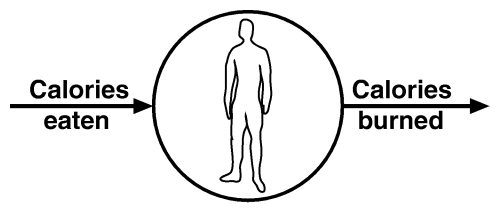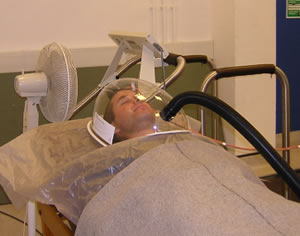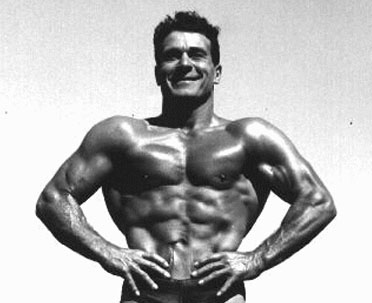One last thing about keto
Now that I've given you everything you could possibly want to know about the ketogenic diet, I think it's time to step back and look at the bigger picture. Sure, I hold keto in extremely high regard, but that's only because I think it deserves it: it works wonders for those who are overweight and are insulin resistant. However, it's not the ultimate one-size-fits-all diet.
The definition of weight loss
The term "weight loss" is not entirely accurate, because that weight could be anything. From time to time, I'll see someone on the internet ask "What's the fastest way to lose weight?" and jokingly someone will respond with "Amputation." But, practically, the issue here is with muscle loss- one can 'lose weight' but actually get fatter. Conversely, one can gain weight and get leaner. The more precise saying is "fat loss" but, frankly, that sounds kind of funny. So whenever I say "weight loss," I really mean "fat loss."
The principles of weight loss
Sometimes, good 'ol caloric restriction is all you need, along with an educated and informed perspective on food, not some special diet- diets are mostly guidance tools anyway. Just to clarify: carbohydrates aren't evil, they're just abused. If you're not insulin resistant, there's no really compelling reason to follow a low-carb diet (other than cardiovascular problems) because your body reacts to insulin as it should, so then your fat cells function as they should. Caloric restriction can do a lot of good for your body aside from weight loss. Many diseases of civilization are caused simply by a chronic caloric excess. Your body is designed to work under both a caloric deficit and surplus- if either one dominates your life, that's not good.
Mental discipline/fortitude, consistency, and patience are the keys to losing weight. Actually, those are the keys to any fitness related goal, be it athletic or aesthetic.
Calories in - calories out = change in stored energy (usually fat)?
Not quite. You've probably seen this before, or at least debunked in Fat Head: this is an extreme oversimplification. Of course the general idea is right- you need a net caloric deficit to lose weight. When put to the test, though, this equation doesn't hold- the mechanisms of energy transfer in your body are much more complicated than simple thermodynamics (I actually took that class last semester- if you want to get technical then this article is a good read). This equation applies only to simple thermodynamic processes; it's how calories are measured in foods, by the way- a sample is placed in a bomb calorimeter and after combusting the sample, scientists can figure out the caloric density of a food through the wonders of science and math. Your body's biochemistry doesn't work that way though- how your body sees a calorie is different than its physical definition: not all calories are equal.
 |
| I got this for a pretty good price off Amazon. It is definitely NOT light reading, though. |
One of the first reasons as to why the aforementioned statement is true is the Thermic Effect of Food, or TEF. Basically, this refers to your body having to expend energy in order to convert what you just ate into a usable form. Each macronutrient has its own average "thermogenic factor" which reflects the percentage of energy expended:
protein has a thermogenic factor of 27% while carbohydrate and fat have thermogenic factors of about 5%. What does this mean? Protein calories are 'worth' significantly less than carbohydrate or fat calories. Protein is king of the macronutrients- eat plenty of it. It supports your lean body mass (which is a very good thing) while making that caloric deficit easier to attain, which gets rid of bodyfat. This is another reason why low-carb diets do well- you end up eating more protein than you would otherwise.
So what does "burning" calories entail, exactly? Well, three major things:
1. Resting Metabolic Rate, or RMR. This is dependent on your weight, age, and genetics. This is often the defining factor in whether a person is "naturally thin" or not. It's the energy your body spends to simply function and keep all of your cells working- you'll burn this many calories if you just sit in bed all day. It can be increased by stimulants: either typical stuff (caffeine, green tea, etc.) or more expensive weight-loss products (Ephedrine, Hydroxycut, etc.). Have you noticed that skinny people tend to be really energetic, and larger ones not so much? Stimulants can help you overcome crappy genetics (if you have them) and give you more energy. This benefit is compounded by the tendency to have more productive workouts, so it's two for the price of one.
If you're really curious, you can get your RMR calculated.
2. The Thermic Effect of Food, as previously discussed.
3. Activity. This one's obvious.
Yeah, Wii Sports counts. Boxing will make your heart rate surprisingly high.
Wii Fit is boring though.
Wii Fit is boring though.
The problem is that a lot of people who try to lose weight don't exercise. Often, that ends up causing the diet to fail because either the dieter doesn't get results or they end up being tired all the time, and they end up quitting. That's because your body's DNA is all about survival- cut your caloric intake and guess what happens? Your RMR lowers too, and it might even match your caloric deficit, given it's small enough. So how do you prevent this from happening? Exercise, of course. There's only one problem: exercise tends to increase your appetite (though not immediately afterward) so exercise without dieting is often a futile attempt at losing weight.
Now, exercise is something I'll cover in my next post in greater detail, but I want to stress how important it is. Personally, I think everyone should be active regardless of their physical shape because it's the key to being healthy, which is much more important than outward appearance.
Jack LaLanne lived to be 96. Go look him up on Google and YouTube- there's a reason he's called "The Godfather of Fitness."
On common misconceptions about exercise
"You've got to feel the burn." You've seen this phrase before, but what does it mean? Nothing, really- that burn isn't anything special, and it's certainly not the feeling of fat being metabolized.
Exercise is not the only time you can burn off fat. It's really all about creating a caloric deficit.
Sometimes I hear talk of "burning off" certain 'bad' foods, sometimes pre-emptively. I'm nitpicking here, but this is not the right mindset, for two major reasons:
First, it's just wrong to think that one serving of junk food or one dessert or one high-calorie meal is going to mess up your diet, whether you are trying to lose weight or not. All that matters is your total daily intake of calories (actually, weekly nutrition is more important), so you can compensate by eating less either before or after your little binge. Junk food is merely a combination of carbs, proteins, and fats; therefore, there's nothing special about junk food that will make you fat (However, it's still good for your health to shun highly processed foods for other reasons).
Second, having more leeway in your diet is a benefit of working out, not the other way around- it's not about balancing pleasure and pain in your life.
Exercise doesn't have to be unenjoyable, but there is a time and a place for difficulty. You should enjoy exercise, or eventually learn to (more on this in my next post). The only time your workouts should suck is if it's for a sports team or likewise, where high performance is needed. Otherwise, you only need very difficult workouts if you want very fast change.
Another thing that too many people do: 'track' how many calories they burned during their workout. Sure, it's fine to figure a rough estimate and use it to ballpark your caloric deficit, but often this number is inflated (especially on cardio machines) and people sometimes end up eating more because they think they've earned it, which is a pretty bad idea because they usually end up overcompensating. Actually, caloric intake is the only thing you can be certain of. Consistency is key for losing weight, and you should aim for the same number of calories every day. There are many calorie trackers out there, some in the form of mobile apps, but the best ones are web-based, and my favorite by far is Livestrong.com's MyPlate. It's got a huge database, it's fast, and (in my opinion) nicer-looking than the rest. I use it all the time, and I recommend it highly.




No comments:
Post a Comment